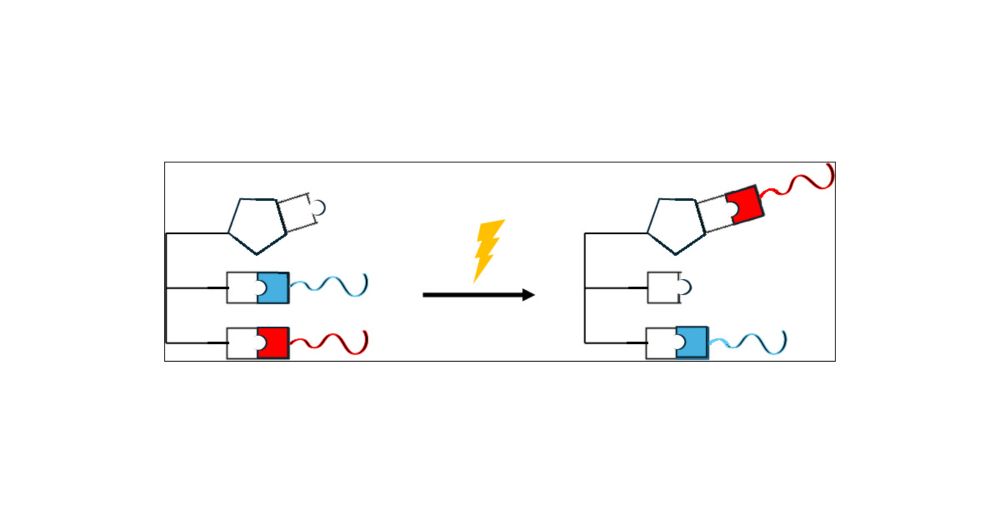@thexavierlab.bsky.social
Genes to functions. Microbiome in health & disease. Computational biology. Chemical biology. Innate & adaptive immunity.
http://broadinstitute.org/xavier-lab
https://molbio.massgeneral.org/faculty/343
http://broadinstitute.org/xavier-lab
https://molbio.massgeneral.org/faculty/343
October 30, 2025 at 4:18 PM
Our findings offer a new target that could be useful for diagnosing or treating certain cases of depressive disorder. They also provide a roadmap for probing how other members of the gut microbiome influence human health and behavior.

Unusual Phospholipids from Morganella morganii Linked to Depression
A multifactorial association study detected a probable causal connection between the prevalence of Morganella morganii in the gut microbiome and the incidence of major depressive disorder (MDD) in the...
pubs.acs.org
September 25, 2025 at 6:31 PM
Our findings offer a new target that could be useful for diagnosing or treating certain cases of depressive disorder. They also provide a roadmap for probing how other members of the gut microbiome influence human health and behavior.
September 11, 2025 at 9:15 PM
This finding suggests that molecular patterns could be more useful categories for microbiome-driven immune regulation than taxonomy. (2/2)
Read the study in JACS – pubs.acs.org/doi/10.1021/...
@broadinstitute.org
@mgbresearch.bsky.social
Read the study in JACS – pubs.acs.org/doi/10.1021/...
@broadinstitute.org
@mgbresearch.bsky.social

Eggerthella lenta Produces a Cryptic Pro-inflammatory Lipid
Eggerthella lenta is both one of the most studied and least understood members of the human gut microbiome. Most of the interest in this Gram-positive anaerobe originates from multiple robust associations of its population with a variety of autoimmune diseases, perhaps most notably inflammatory bowel disease (IBD). The links between bacteria and inflammation are only partially known. Inflammation is driven by Th17 cells and their inflammatory cytokine IL-17, and the population of these cells is promoted by a transcription factor, RORγt. Bacterial metabolites appear to activate RORγt in a cell- and antigen-independent fashion, but the metabolites and their activating mechanism are unknown. This report describes an assay-driven search for pro-inflammatory metabolites from E. lenta that revealed a plasmalogen-triggered plasmalogen pair that forms a single molecule signal transduction device. Small electrophiles characteristic of inflammatory environments react with the plasmalogen’s sensitive vinyl ether moiety to create a lipid signal, a lysoglycoglycerolipid that upregulates the inflammatory cytokines TNF-α and IL-6 through a TLR receptor. This provides a molecular mechanism that allows E. lenta to upregulate inflammatory responses in a cell- and antigen-independent fashion. This molecular mechanism is similar to an endogenous signaling system that upregulates RORγt through a triggered mammalian plasmalogen signal, 1–18:0-lysophosphatidylethanolamine.
pubs.acs.org
July 21, 2025 at 4:08 PM
This finding suggests that molecular patterns could be more useful categories for microbiome-driven immune regulation than taxonomy. (2/2)
Read the study in JACS – pubs.acs.org/doi/10.1021/...
@broadinstitute.org
@mgbresearch.bsky.social
Read the study in JACS – pubs.acs.org/doi/10.1021/...
@broadinstitute.org
@mgbresearch.bsky.social
...and maps expression of genetic risk variants onto intestinal biogeography. Read the results of this exciting collaboration!
@broadinstitute.org @mgbresearch.bsky.social @genelayinstitute.bsky.social
@broadinstitute.org @mgbresearch.bsky.social @genelayinstitute.bsky.social
June 25, 2025 at 2:25 PM
...and maps expression of genetic risk variants onto intestinal biogeography. Read the results of this exciting collaboration!
@broadinstitute.org @mgbresearch.bsky.social @genelayinstitute.bsky.social
@broadinstitute.org @mgbresearch.bsky.social @genelayinstitute.bsky.social


